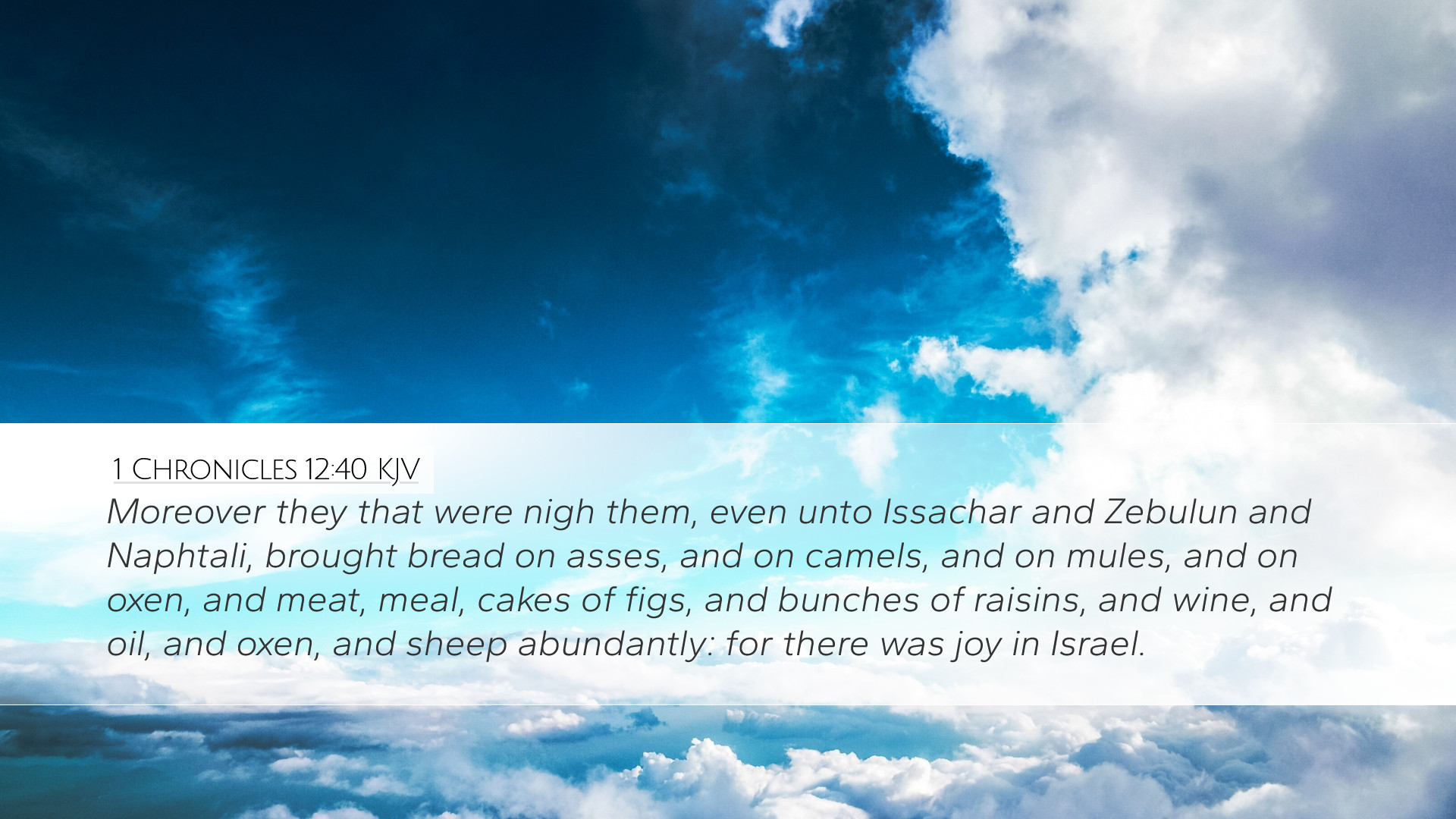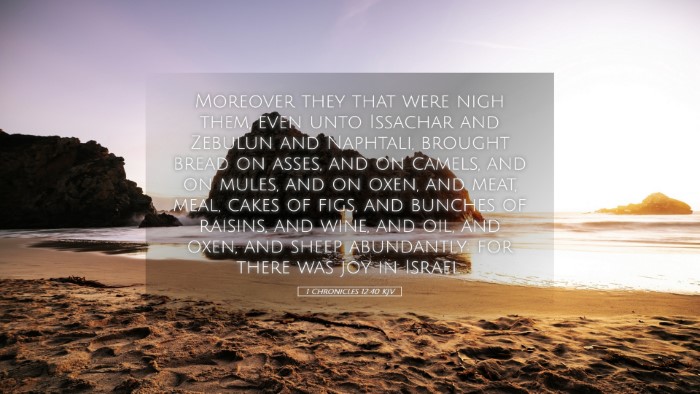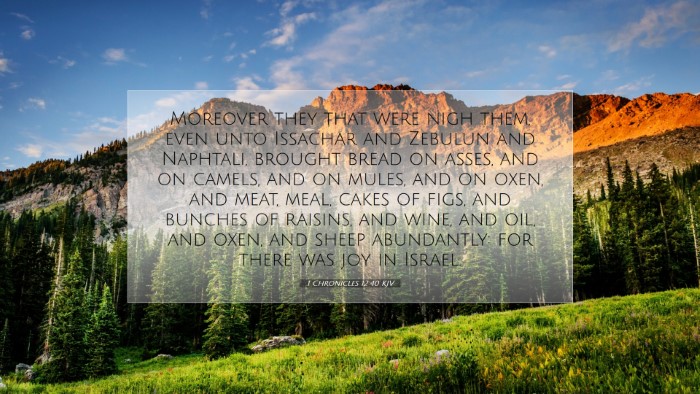Commentary on 1 Chronicles 12:40
"And there were with David from the children of Ephraim twenty thousand and eight hundred, mighty men of valour, famous throughout the house of their fathers."
Introduction
The verse under consideration provides a glimpse into the military strength and prowess of King David's loyal supporters. In the context of Israel's history, it emphasizes the significance of tribal alliances and the valor of soldiers who rallied to David, particularly from the tribe of Ephraim.
Contextual Background
1 Chronicles 12 serves as a catalog of those who joined David during his rise to power. This section of the Chronicles highlights the diverse backgrounds of the warriors and their unwavering commitment to David, thus illustrating the unity required for effective leadership.
Insights from Public Domain Commentaries
Matthew Henry
Matthew Henry emphasizes the military capacity and reputation of David’s supporters. He notes that the phrase "mighty men of valour" signifies not just physical strength, but also moral courage and leadership skills. Henry points out that these men were “famous throughout the house of their fathers,” which suggests that they carried a legacy of valor and honor. Their lineage contributed to their identity, thereby strengthening their commitment to David’s cause.
Albert Barnes
Albert Barnes provides an analysis on the numerical strength indicated by "twenty thousand and eight hundred". He argues that this was a significant force in the ancient context, suggesting that David had garnered substantial support for his rule. Barnes further mentions that the willingness of the Ephraimites to join him was a testament to their recognition of David’s divine selection as king, contrasting with Saul’s lineage.
Adam Clarke
Adam Clarke focuses on the tribal affiliations and their roles in supporting David. He remarks on Ephraim’s historical significance within Israel, noting that the tribe was often seen as a leader among the tribes. Clarke emphasizes the importance of unity among the tribes, as evidenced by the coalition forming under David's leadership, which ultimately led to a stronger, more unified Israel.
Theological Implications
This verse raises important theological themes, particularly regarding divine selection, leadership, and communal identity. The joining of the warriors to David signifies the recognition of God’s plan through him, showcasing a collective understanding of divine providence in establishing rightful leadership.
Covenantal Community
The alliance of the tribes under David represents the covenantal community of Israel. Just as God had chosen David, the people also recognized their role in fulfilling the covenant by supporting a leader who embodied divine will. This sense of community is crucial for scholars and theologians as it presents a model of collective faith and action.
Leadership and Valor
David’s ability to attract such a formidable group of warriors reveals essential qualities of effective leadership, such as vision, integrity, and faith. The vigor and reputation of these men enhance David’s leadership, reinforcing the notion that good leaders inspire loyalty and valor in those they lead.
Application for Today’s Believers
In contemporary faith contexts, 1 Chronicles 12:40 teaches the value of unity and the importance of having courageous, committed followers who recognize and support divinely ordained leadership. It encourages believers to consider their own communities: Are we collectively supporting the leadership within our churches with valor and integrity? This passage poignantly calls today’s followers to be such "mighty men (and women) of valour".
Conclusion
The military might of David's supporters from Ephraim, as noted in 1 Chronicles 12:40, is a powerful testimony to the strength found in unity, shared purpose, and recognition of God’s will. The insights from classic commentaries serve as a rich resource for understanding both the historical context and the enduring spiritual principles derived from this verse. By engaging with these teachings, pastors, students, theologians, and scholars can deepen their appreciation for the dynamics of faith, leadership, and community.


